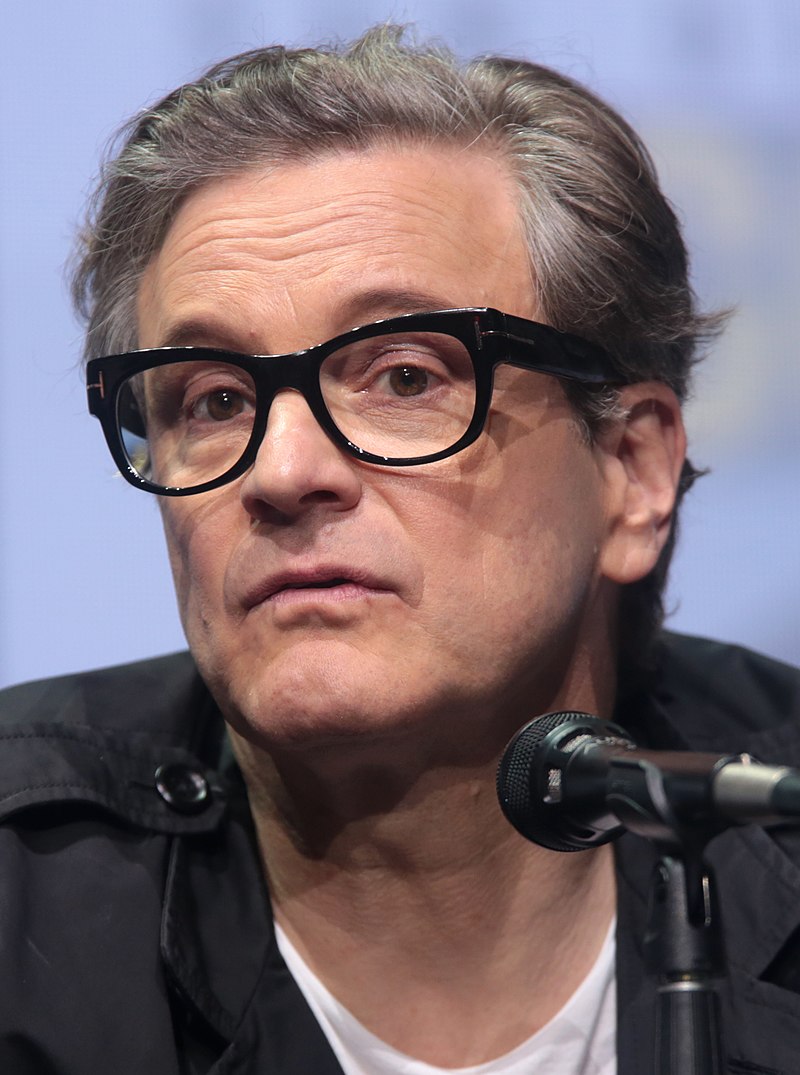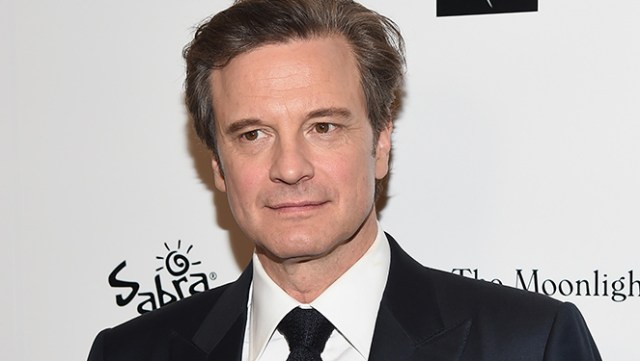Colin Firth
Colin Firth

Colin Andrew Firth CBE, born on September 10, 1960, is a renowned English actor and producer. Rising to prominence in the mid-1980s as part of the esteemed "Brit Pack" of emerging British actors, Firth embarked on a challenging array of roles, including notable performances in A Month in the Country (1987), Tumbledown (1988), and Valmont (1989). However, it was his iconic portrayal of Mr. Darcy in the 1995 television adaptation of Jane Austen's Pride and Prejudice that catapulted him to international fame.
Following his breakthrough, Firth garnered widespread attention and acclaim for his roles in prominent films such as The English Patient (1996), Shakespeare in Love (1998), and The Importance of Being Earnest (2002). He further solidified his status as a leading actor with memorable performances in Girl with a Pearl Earring (2003) and Love Actually (2003). Notably, Firth reprised his role as Mark Darcy in the beloved romantic comedy series Bridget Jones's Diary (2001), Bridget Jones: The Edge of Reason (2004), and Bridget Jones's Baby (2016).
In 2009, Firth received international acclaim for his portrayal of a grieving professor in Tom Ford's A Single Man, earning him a BAFTA Award and his first Academy Award nomination. The pinnacle of his career came in 2010 with his portrayal of King George VI in The King's Speech, for which he won the Academy Award for Best Actor. Firth continued to showcase his versatility in roles such as MI6 agent Bill Haydon in Tinker Tailor Soldier Spy (2011) and as secret agent Harry Hart in the Kingsman franchise.
Beyond his film career, Firth has made notable contributions to television, earning Primetime Emmy Award nominations for his roles in BBC's Conspiracy (2001) and HBO's The Staircase (2022). In addition to his acting endeavors, Firth is a dedicated advocate for Indigenous rights, asylum seekers, refugees, and environmental causes. He is the founder of the production company Raindog Films, which has produced successful films like Eye in the Sky (2015) and Loving (2016).
Firth's illustrious career has earned him numerous accolades, including an Academy Award, two British Academy Film Awards, a Golden Globe Award, and three Screen Actors Guild Awards. In recognition of his contributions to drama, he was appointed a CBE by Queen Elizabeth II in 2011 and received a star on the Hollywood Walk of Fame. Firth's impact extends beyond the realm of entertainment, as he continues to use his platform to advocate for social and environmental justice.
Colin Firth was born in the village of Grayshott, Hampshire, to parents deeply entrenched in academia and education. His mother, Shirley Jean, lectured on comparative religion at King Alfred's College (now the University of Winchester), while his father, David Norman Lewis Firth, taught history at the same institution and served as an education officer for the Nigerian government. Firth, the eldest of three siblings, grew up in a household where education and intellectual pursuits were paramount. His sister, Kate, pursued a career in acting and voice coaching, while his brother, Jonathan, also became an actor.
Firth's upbringing was marked by frequent travels due to his parents' profession, including stints in Nigeria and India. His childhood included a challenging period in St. Louis, Missouri, at the age of 11, which he described as difficult. Upon returning to England, he attended the Montgomery of Alamein Secondary School (now Kings' School) in Winchester, Hampshire. However, he struggled to fit in and was often the target of bullying. To adapt, Firth adopted the local Hampshire accent and adopted a disinterest in academics to align with his peers.
Despite his early academic disinterest, Firth discovered a passion for acting at a young age, attending drama workshops from the age of 10. By 14, he had resolved to pursue acting professionally. Although he found little interest in traditional schooling, his perspective shifted during his time at Barton Peveril Sixth Form College in Eastleigh. There, he developed a love for English literature under the guidance of a passionate teacher named Penny Edwards, and he considers those years among the happiest of his life.
After completing his sixth form education, Firth relocated to London, where he joined the National Youth Theatre, forging valuable connections in the industry. He also secured a position in the wardrobe department at the National Theatre. Subsequently, Firth honed his craft at Drama Centre London, laying the foundation for his illustrious career in acting.
Colin Firth's acting career began to flourish after he portrayed Hamlet in the Drama Centre's end-of-year production, catching the attention of playwright Julian Mitchell. This led to Firth's role as Guy Bennett, a gay and ambitious public schoolboy, in the 1983 West End production of "Another Country," and subsequently, his film debut as Tommy Judd in the screen adaptation of the play. The film marked the beginning of a public feud between Firth and Rupert Everett, who played Guy Bennett, which was later resolved. Firth also appeared alongside Sir Laurence Olivier in the TV adaptation of J. B. Priestley's novel "Lost Empires" in 1986.
In 1987, Firth was part of the 'Brit Pack,' a group of emerging British actors, alongside Tim Roth, Bruce Payne, and Paul McGann. He continued to showcase his talent in various roles, including his portrayal of a war-traumatized character in "A Month in the Country" and real-life British soldier Robert Lawrence MC in the BBC dramatization "Tumbledown," for which he received critical acclaim and awards recognition.
Firth's breakthrough into mainstream recognition came with his portrayal of Mr. Darcy in the 1995 BBC television adaptation of Jane Austen's "Pride and Prejudice." Despite initial hesitation due to his unfamiliarity with Austen's work, Firth's performance garnered widespread acclaim, particularly for his complex portrayal of Darcy's aloofness and vulnerability. The series catapulted Firth to stardom, solidifying his status as a romantic leading man. However, Firth expressed a desire not to be typecast and sought to diversify his roles beyond romantic leads.
References
- Kistler, Alan (2013). Doctor Who: A History. Rowman & Littlefield. p. 198. ISBN 9781493000166. Retrieved 20 November 2021.
- ^ "Colin Firth wins best actor Oscar for The King's Speech". BBC News. 28 February 2011. Retrieved 5 May 2021.
- ^ "Colin Firth's Box Office Stats". The Movie Times. Retrieved 23 January 2013.
- "Colin Firth credited in brain research". BBC News. 5 June 2011. Retrieved 13 March 2021.
- "No. 59808". The London Gazette (Supplement). 11 June 2011. p. 7.
- ^ "Main list of the 2011 Queen's birthday honours recipients" (PDF). BBC News UK. Retrieved 11 June 2011.
- ^ "Full List – The 2011 Time 100", Time, 21 April 2011. Retrieved 8 October 2012.
- ^ "Person Details for Colin A Firth, "England and Wales Birth Registration Index, 1837-2008" — FamilySearch.org". FamilySearch.







































